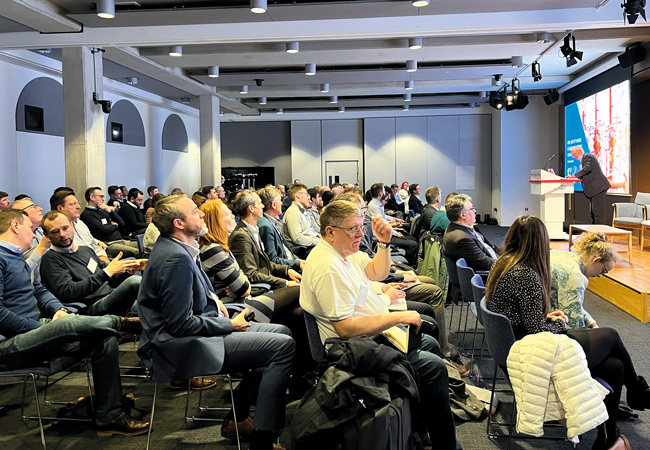
Carbon neutrality and water conservation are current issues for SoPHE members
Peter White MCIBSE FSoPHE has been chair of the Society of Public Health Engineers (SoPHE) for the past three years, but will step down from this role in April. He is the founder of Public Health Design Consultants, for which he is a director offering specialist public health advice to the construction industry. Working within the plumbing sector for more than 40 years, he started out as an apprentice for his family’s plumbing and heating business.
Were you fated to become a public health engineer?
In retrospect, I guess I was, but I didn’t know it at the time! When I first came into the workplace, I knew what a plumber did, but I had never heard of a public health engineer.
I have been lucky to meet and be inspired by so many interesting people throughout my career. Their support and encouragement has helped me enormously and I’ve learned never to be afraid to ask for advice.
What is the biggest change you have seen as SoPHE chair?
Carbon neutrality, and water conservation and security have been influencing what we do for a while now. I noticed at December’s COP28 that water resilience is moving up the agenda, so that may begin to accelerate the conversation here in the UK.
What do you think the future challenges will be in the public health industry?
The industry is currently wrestling with the need to protect domestic hot water systems against legionella versus an energy-saving desire to reduce hot water distribution temperatures. There is no consensus at present, but SoPHE is playing its part, and one of our past chairs, Steve Vaughan, is doing a lot to lead the conversation in the wider industry.
More broadly, we need to ensure that we continue to attract and properly train good-quality engineers to deal with an increasingly complex set of challenges. There is a lot of research worldwide on viable alternatives to using water for toilet flushing. Nowadays, it seems bonkers that we use drinking water to transport human waste to treatment plants – but, like most things, there’s no simple fix. I have no doubt some future SoPHE chair will write an article about whatever this ‘new’ technology turns out to be!
What would you say to someone considering a career in public health?
I would say that it was an excellent idea. Based on my own experience, it has given me a career that I thoroughly enjoy, working on all sorts of interesting projects with all sorts of interesting people. I’ve also made a lot of friends and a good living along the way. I’d encourage them to take a look at the SoPHE website and put them in contact with SoPHE YEN.
Of what have you been most proud at SoPHE?
Those who know me best will know that my immediate response would be unprintable, but the polite version would be that I haven’t messed it up too badly!
Like every chair before me, we’ve all tried to make SoPHE a little better. My term started at the tail-end of Covid, amid all the disruption that caused. In bringing SoPHE back to normal business, we now have a well-established set of committees empowered to organise and host a solid calendar of annual events for our membership, and have set up a quarterly e-newsletter.
What are the key dates for SoPHE in the 2024 calendar?
There are so many to choose from. Our next headline event is our Technical Conference at the IMechE on 21 March, which will focus on ‘Rainwater; collection, reuse and disposal’ and the challenges that public health engineers face with reference to climate change. There are also lots of CPDs, networking events, YEN competitions and flagship dinners in London and Manchester. Updates are available in our newsletter.
For more information about SoPHE, visit www.cibse.org/sophe

